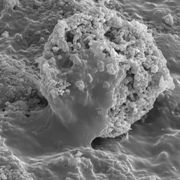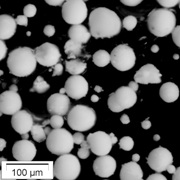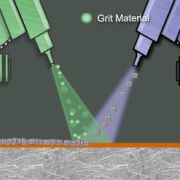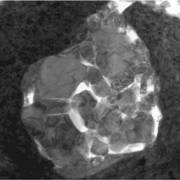Deposition of Hydroxyapatie Coatings
Monday, 30 June, 2025
Keywords: hydroxyapatite, bioactive ceramic coatings, implant coatings, dental coatings, surface blasting, rapid coating technology.
Description:
This research is focused on understanding the use of microblast (CoBlast) for the deposition of hydroxyapatite coatings. CoBlast involves the bombardment of the substrate surface with relatively low-speed and low-temperature particles. The process allows for the dopant material to be integrated into the new surface via a combination of tribochemical bonding and mechanical interlocking. The consequent biointerface is in effect an amalgam of the metal oxide and the deposited material rather than a coating in the traditional sense. Indeed, due to its unique conformation—a disjointed non-continuous deposition of bioceramic material in and on the metal oxide—the newly formed “modified” surface is not prone to delamination through chipping or peeling, as is the case with a coating.
Further research has begun to understand the key coating parameters which influence the interaction with osteoblast cells and how surface modification or post-treatment can influence this interaction.
Contact details
Prof. Denis Dowling
Director, UCD Surface Engineering
Email: (opens in a new window)denis.downling@ucd.ie



